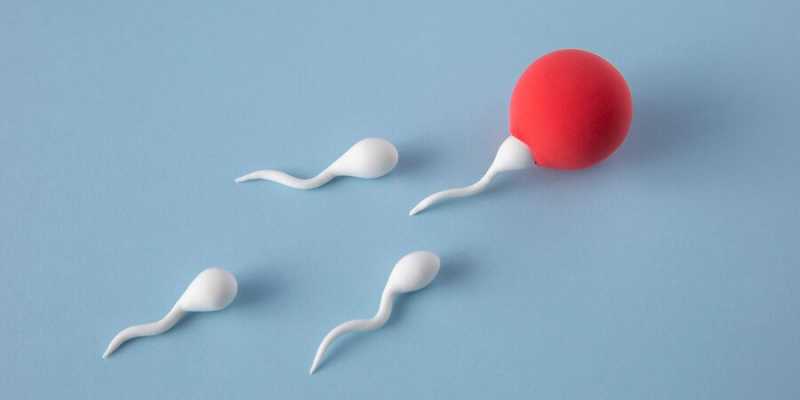One of the ways to identify whether sperm is fertile or not is by observing the consistency of semen. Just like women, men can also experience fertility issues—most commonly related to sperm quality, which plays a crucial role in human reproduction. If sperm is not healthy, fertilization may not occur, making it difficult for couples […]
One of the ways to identify whether sperm is fertile or not is by observing the consistency of semen. Just like women, men can also experience fertility issues—most commonly related to sperm quality, which plays a crucial role in human reproduction. If sperm is not healthy, fertilization may not occur, making it difficult for couples to conceive.
There are several indicators used to assess whether sperm is fertile, including semen consistency, sperm count, morphology (shape), motility (movement), and color. Below are five key methods to distinguish between fertile and infertile sperm.
Read more: 8 Sexually Transmitted Diseases in Men: Types, Symptoms, and Prevention
Signs of Healthy Sperm vs Unhealthy Sperm
1. Semen Consistency
Thick and sticky semen is often associated with higher sperm quality, as it may help sperm survive and travel more effectively. On the other hand, watery or thin semen might indicate a lower concentration of sperm or other fertility issues. While consistency alone isn’t a definitive measure of fertility, consistently watery semen should be evaluated by a healthcare provider.
2. Sperm Count
Sperm count refers to the number of sperm present in one milliliter of semen. According to the World Health Organization (WHO), a normal count is at least 15 million sperm per milliliter. A low sperm count—also known as oligospermia—can decrease the chances of fertilizing an egg. This metric can only be measured through a semen analysis, which is usually performed in a specialized fertility clinic or diagnostic laboratory.

Image source: Freepik
3. Sperm Morphology (Shape)
Sperm morphology describes the size and shape of individual sperm. Ideally, sperm should have a smooth, oval head and a long, straight tail to swim effectively. Misshapen sperm, such as those with double tails or irregular heads, often have reduced functionality and are less likely to fertilize an egg. An abnormal morphology rate doesn’t always mean infertility, but it can affect overall reproductive success.
4. Sperm Motility (Movement)
Motility is the ability of sperm to move properly through the female reproductive tract toward the egg. Fertile sperm should swim in a forward, progressive motion. Low motility—known as asthenozoospermia—can prevent sperm from reaching the egg, even if the count and shape are normal. A motility assessment is an essential part of semen analysis in determining male fertility.
5. Semen Color
Healthy semen is typically whitish-gray and slightly opaque. A yellowish or greenish tint could indicate infection, while clear or watery semen may reflect low sperm concentration. Though semen color can provide clues, it is not enough to assess fertility. Persistent color changes should be discussed with a urologist or andrologist for proper diagnosis and treatment.
Read more: Azoospermia: Definition, Causes, and How to Overcome
Causes of Poor Sperm Quality
Sperm production is regulated by the testes, hypothalamus, and pituitary gland in the brain. If any of these organs malfunction, sperm production may be affected. Several other factors can also lead to reduced sperm quality, including:
- Medical conditions (e.g., varicocele, infections)
- Use of certain medications
- Exposure to environmental toxins or chemicals
- Unhealthy lifestyle habits (e.g., smoking, excessive alcohol)
- History of reproductive organ surgery
- Elevated testicular temperature (e.g., from frequent hot baths or tight clothing)

Image source: Freepik
Maintaining Sperm Health
Understanding how to differentiate between healthy and unhealthy sperm is crucial for couples trying to conceive. Healthy lifestyle choices can significantly improve sperm quality. Some essential tips include:
- Eating a balanced, nutrient-rich diet
- Exercising regularly
- Keeping the testicular area cool
- Limiting alcohol and caffeine intake
- Taking fertility supplements, if recommended
By adopting these habits, men can help preserve their fertility and improve their chances of successful conception.
For in-depth information on reproductive health, pregnancy programs, or infertility solutions, the experts at Morula IVF Indonesia are here to help. Morula IVF fertility clinics offer comprehensive consultations and advanced technologies such as artificial insemination and in vitro fertilization (IVF) to assist with reproductive health concerns.




